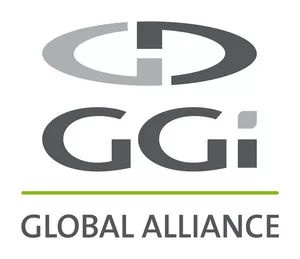- within Tax topic(s)
- with Finance and Tax Executives
- in United States
- with readers working within the Accounting & Consultancy and Media & Information industries
On 04 July 2025, US President Donald Trump signed into law the One Big Beautiful Bill Act (OBBBA), a sweeping legislative package that includes international tax rule changes that, together with US tariffs, are driving companies around the globe to overhaul their cross-border supply chain strategies.
The administration's aim, and the objective of the bill's international provisions, is to encourage a shift toward US-based production. The bill's revision of two key provisions – the Global Intangible Low-Taxed Income (GILTI) regime and Foreign Derived Intangible Income (FDII) – are central to this shift.
GILTI regime
Prior to 2017, active business income of controlled foreign corporations (CFCs) remained largely unaffected by US anti-deferral rules. However, the introduction in 2017 of the GILTI rules dramatically changed the status quo by requiring the inclusion of CFC active business income in US shareholders' taxable income.
For purposes of determining the taxable GILTI amount, the GILTI rules bifurcated the active income of CFCs into two buckets:
- "Tangible income" related to CFC productive assets ( formally known as Qualified Business Asset Investment or QBAI; and
- All remaining income, referred to as "intangible income", which was the focus of the GILTI tax.
The rules arbitrarily imputed a notional 10% return on a CFC's "tangible income" and provided that this 10% return was exempt from the GILTI tax. The carve out of tangible income from the GILTI taxable amount incentivised US companies to continue to move manufacturing and other supply chain activities to CFCs, thereby reducing CFC earnings subject to the GILTI tax.
Under the 2017 rules, GILTI income was subject to an effective tax rate of 10.5%. A foreign tax credit was available for up to 80% of foreign tax paid by relevant CFCs, which typically offset some, if not all, of the 10.5% tax.
The ability to secure a US tax rate of between 0% and 10.5% on GILTI-deemed dividends ensured that US businesses would continue their strategy of moving productive elements of their supply chain to offshore subsidiaries located in lower-cost countries.
Eight years after GILTI was first introduced, the 2025 OBBBA now dramatically modifies the CFC GILTI regime. First, the bill increased the effective tax rate on GILTI earnings from 10.5% to 12.5%. Second, and most importantly, OBBBA eliminated US taxpayers' ability to reduce their GILTI amount by the 10% return on each CFC's qualified business asset investment (QBAI) assets. The resulting increase in the taxable GILTI amount substantially reduces the tax benefit of the GILTI regime, and effectively discourages the shifting of US production assets offshore.
FDII regime to FDDEI
The US Foreign Derived Intangible Income (FDII) provision is a US tax incentive introduced by the 2017 Tax Cuts and Jobs Act (TCJA) to encourage US corporations to export goods, services, and intellectual property. The effective tax rate on qualifying export income under the 2017 FDII regime was 13.125%. The 2025 OBBBA permanently fixes the effective rate at 14%.
The 2017 FDII rules also relied on the QBAI concept by requiring US corporations to reduce their export income by the 10% return on tangible business assets, which largely diluted the FDII tax benefit for US companies with substantial US production assets. The new Foreign Derived Deduction Eligible Income (FDDEI) regime removes this requirement, thereby permitting virtually all of a US company's export income to qualify for the low tax rate.
Consistent with the removal of the QBAI concept and the related tangible and intangible income buckets, the OBBBA removes the "intangible" qualifier from the FDII title and changes the regime name to Foreign Derived Deduction Eligible Income (FDDEI).
Starting 01 January 2026, US export income qualifying for the favourable FDDEI tax rate will no longer be decreased by the allocation of interest and research and development (R&D) expense.
Strategic implications: the "home shift"
Together with tariffs and the new US rule permitting expensing of 100% of new investments in plant and equipment, the above OBBBA measures are overhauling global supply chains by shifting productive functions and assets to the US, with the goal of reducing their exposure to rising geopolitical tensions and conflicts that could cripple the US economy.
The content of this article is intended to provide a general guide to the subject matter. Specialist advice should be sought about your specific circumstances.


